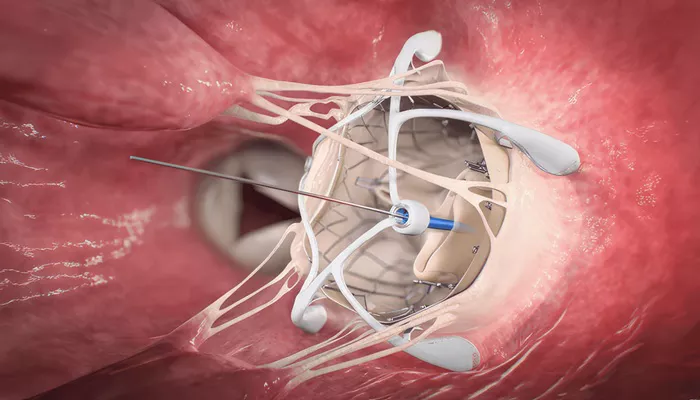A team of researchers at UBC Okanagan has developed a groundbreaking heart valve technology that could significantly enhance the lives of patients requiring valve replacements. Led by Dr. Hadi Mohammadi, an Associate Professor in the School of Engineering, the team is pioneering the design of the next generation of mechanical heart valves.
Dr. Mohammadi describes their latest creation, the iValve, as the most advanced mechanical heart valve to date. This innovative valve merges the advantages of both mechanical and tissue valves, aiming to provide a solution that is both durable and effective.
“Tissue valves generally perform better than mechanical valves due to their shape, but they typically last only 15 to 20 years, necessitating another replacement. In contrast, mechanical valves can last a lifetime but do not perform as well, requiring patients to take daily anticoagulants,” Dr. Mohammadi explains. “Our new mechanical heart valve combines the best of both worlds, offering the performance of tissue valves with the durability of mechanical valves. We believe this valve could make life easier and safer for patients.”
The development of the iValve was made possible through collaboration with ViVitro Labs and independent consultants Lawrence Scotten and Rolland Siegel. The research received funding from Angeleno Medical and was recently published in the Journal of Biomechanics.
“This is the only valve of its kind designed and built in Canada,” Dr. Mohammadi emphasizes. “We are incredibly proud to showcase this valve as a testament to the engineering innovation emerging from UBC and Canada.”
One of the significant challenges in the field has been creating a mechanical heart valve suitable for infants. Dr. Mohammadi highlights the iValve’s design, stating, “What is particularly exciting about the iValve is that it was specifically designed for high-heart-rate applications, such as in pediatric patients.”
With successful mechanical lab tests completed, the researchers are preparing to advance the iValve to animal and clinical trials. If all goes as planned, they expect to initiate these trials within two years.
In addition to the iValve, the team is also focused on developing new valves using the same technology and techniques.
“This valve is designed to facilitate blood flow to the aorta, the body’s largest artery, which carries oxygen-rich blood from the heart throughout the body,” Dr. Mohammadi explains. “Next, we will apply our findings to create a valve for the mitral valve, which ensures blood flows from the left atrium to the left ventricle and prevents backflow between these two chambers.”
Dr. Dylan Goode, the Heart Valve Performance Lab Manager, expresses enthusiasm for the potential impact of the iValve on patient care. Dr. Goode began collaborating with Dr. Mohammadi in 2018 while completing his Master of Applied Science in Mechanical Engineering and has recently defended his doctoral dissertation, which details his work on the iValve.
“We have demonstrated that the iValve can provide the structural benefits of a mechanical heart valve and last a patient’s lifetime while improving hemodynamic performance, which enhances blood flow through vessels,” Dr. Goode states.
The introduction of the iValve could also lead to significant lifestyle improvements for patients who currently rely on regular anticoagulant therapy. These blood thinners can increase the risk of severe bleeding, blood clots, or damage to tissues and organs if blood flow is obstructed.
The innovative work being done at UBC Okanagan represents a significant step forward in heart valve technology, with the potential to improve patient outcomes and quality of life.


